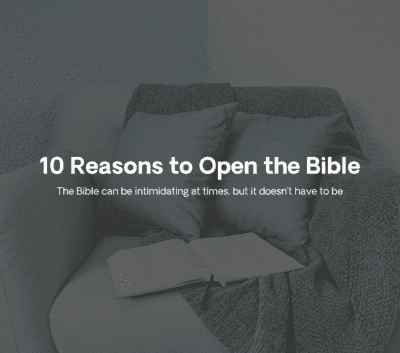Meetup is an app designed to build communities based on shared interests. Graveyard tours. Bat watching. Train spotting. Whatever floats your boat, you can find others with a shared interest. It’s a great tool for meeting people—for building community in a culture where loneliness is almost as dangerous a pandemic as Coronavirus.
In a surprising turn of events, while the pandemic ravages the lives of individuals, local communities across Europe are thriving. Neighbors are reaching out to support one another. People are singing on balconies, spontaneously performing concerts in the street for their neighbours, fetching shopping, and offering up their time to phone lonely neighbours for a chat.
In Scandinavia, very strong communities exist based on tight knit friendship groups. Almost impossible to infiltrate, these communities are the building block not just for a happy society, but a healthy one, with a strong economy. The lack of interaction between these tightly-knit groups is probably responsible in some way for the remarkably low rates of coronavirus transmission recorded in Scandinavia.
In Acts 2:42-47, we read about the community God is building. And at a glance, it can seem remarkably similar to the communities described above. Close-knit, local, based on a shared interest in teaching, prayer, and fellowship.
But context is key. Just a few paragraphs earlier, Acts 2:5-11 describes one key distinctive about this gospel community:
Now there were dwelling in Jerusalem Jews, devout men from every nation under heaven. And at this sound the multitude came together, and they were bewildered, because each one was hearing them speak in his own language. And they were amazed and astonished, saying, “Are not all these who are speaking Galileans? And how is it that we hear, each of us in his own native language? Parthians and Medes and Elamites and residents of Mesopotamia, Judea and Cappadocia, Pontus and Asia, Phrygia and Pamphylia, Egypt and the parts of Libya belonging to Cyrene, and visitors from Rome, both Jews and proselytes, Cretans and Arabians—we hear them telling in our own tongues the mighty works of God.”
God-given Unity
The gospel community described in Acts 2 is utterly unique—set apart from any other community on earth. Verse 5 describes the crowd as being ‘”from every nation under heaven.” They have more differences than similarities.
How on earth is there such a community? This community is joined supernaturally by the Lord, not by shared experience, locality, or family ties.
The Danish “Hygge” communities of family and friends are devoted to same-time and same-place meetings. But they are not church. In one of the books I read about Hygge, the author describes such groups as so very close and tight-knit so as to make it extremely hard for an outsider to join the group. They are not growing; they are exclusive, unchanging, closed to outsiders.
Church is always growing and welcoming outsiders because that is the heartbeat of the one who saves us. The heart of Christ is to welcome sinners. Church is close but not closed.
Meetup can form wonderful communities, built around shared interests. But it is not church. Church is united, not around a shared interest, but around the person of our Lord Jesus Christ.
Local community is a huge blessing. Indeed, it’s part of God’s good design for how his creation would be ruled, cared for, and protected. But even local community is not church. Church is local, but it is also wonderfully global. This is why I can write an article about Christ that is as meaningful to people in the United States as it is to Canadians, Chinese, Koreans, Africans, British, and in fact, every nation under the sun.
God-given Diversity
It’s interesting to realise that, when God created the world, humans all spoke the same language. It was due to a great act of rebellion (Gen. 11), when humans united to build a tower that reached to heaven (Babel), that God scattered them all over the earth and confused their languages.
But his plan is not to bring everyone back to conformity. No, in Revelation 7:9-10, we get a glimpse of heaven where John sees a vision:
… a great multitude that no one could number, from every nation, from all tribes and peoples and languages, standing before the throne and before the Lamb, clothed in white robes, with palm branches in their hands, and crying out with a loud voice, “Salvation belongs to our God who sits on the throne, and to the Lamb!”
God’s plan is one people made up of all tribes, peoples, and languages. Not united by a common language, family group, geographical location or a shared interest in bat watching. Instead, they are united in a common anthem: “Salvation belongs to our God!”
Acts 2:23 records that God’s definite plan for Jesus’ crucifixion was actually achieved by the means of man’s sinful actions: “…this Jesus, delivered up according to the definite plan and foreknowledge of God, you crucified and killed by the hands of lawless men.”
I find it exciting to learn that exactly the same principle was in action in Genesis 11, when lawless men built a tower up to heaven. God used even their rebellion to accomplish his plan for creating diversity.
Love Unity, Love Diversity
When we meet up with other believers, where do we find our unity? Our calendars, our message stream, our newsfeed, our conversations, our podcasts, our role models all reveal this. Do we love what our God loves—finding unity in Christ through diversity in the church?
The gospel community in Acts 2 was built not by human hands, but by God. The community of the church was formed from the rallying call of salvation, which rang out to all peoples. It is not our responsibility to be like the others in our church. It is our responsibility to love Christ and find our unity with others based primarily on our shared salvation stories. Geography, family, and shared interests are merely secondary.
Hygge, Meetup, locality. What is it that unites our church? The community that God builds draws all sorts of people from all sorts of backgrounds and unites them by a common cry: “Salvation belongs to our God!” Let’s have a heart after God’s own heart and extend that gospel indiscriminately to people from every tribe, language, nation, and tongue.
_____
Photo: Pixabay







